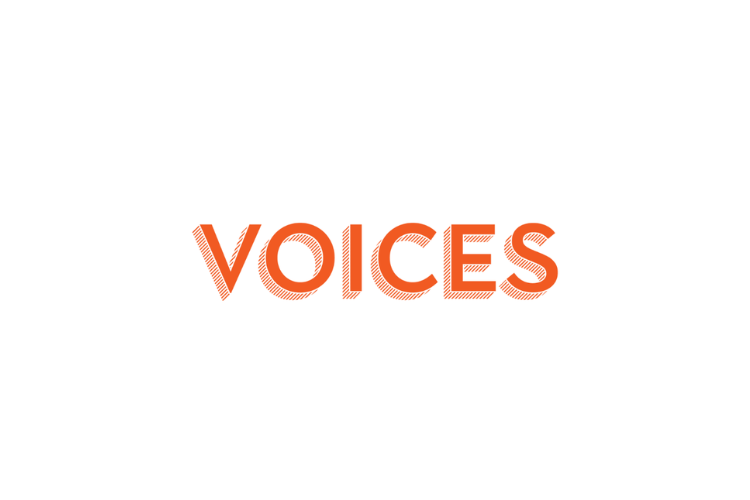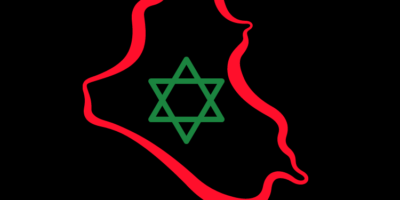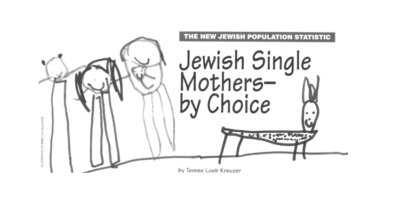
Straight Rabbis Fight For Gay Rights
A rabbi is not just a religious leader, a rabbi is also a community leader and a role model. As such, rabbis are in a position to help their communities set standards— standards of behavior and of tolerance. Rabbis can use their power to keep their communities stagnant and to encourage closed-mindedness and factionalization; or they can use it to work for change, set examples of social activism, and foster atmospheres of acceptance and openness. Two rabbis recently have been exceptional in this regard.
A few years ago, Ann Thai, a horse trainer who lives in Sarasota, Florida began looking for a synagogue where she and her partner, Julie Evonna, a mental health counselor, could feel comfortable about being openly lesbian. They had been going to services at a nearby Conservative synagogue, where Thai says, “Everyone knew we were a couple, but it was only okay as long as no one talked about it.” Thai and Evonna decided that if they were going to join a synagogue, it had to be a place that had a commitment to accepting lesbian families. They began checking out different synagogues in the area, and sent out letters asking about each congregation’s attitudes towards lesbian and gay members.
One of the congregations that received their letter was the Reform Temple Sinai. Rabbi Geoffrey Huntting’s first response was somewhat ambivalent. “I think he felt strongly about the issue at the time, but he was new and didn’t want to shake things up,” Thai recalls. However, a short while later, she found out that Rabbi Huntting was giving a lecture to his congregation about gays and lesbians in Judaism, and decided to go hear what he had to say.
Rabbi Huntting says that issues such as feminism and gay rights within Judaism have always been important to him. When he first met Thai, she told him that there was a sizeable gay Jewish community in the area, which had been largely disenfranchised by the general Jewish community. Rabbi Huntting knew that in some places there were specifically gay synagogues, but felt it was very important to invite gays and lesbians into the larger Jewish community. As one of his congregants told him, “We go to synagogue because we’re Jewish, not because we’re gay.”
When eventually Thai and Evonna wanted to join the congregation, Rabbi Huntting encouraged them to ask the Board to change its by-laws to have a more inclusive definition of the word “family.” According to both Thai and Huntting, there was almost no disagreement or dissent from other members of the Board or the congregation. Temple Sinai’s family membership is now extended to any adult with children or to any two adults living in the same house. Since this change, Rabbi Huntting’s congregation has expanded to include many more lesbian and gay members, as well as many new straight members who like the atmosphere of tolerance and diversity. His influence has expanded beyond the bounds of his own Temple Sinai: Temple Beth Sholem, the area’s Conservative congregation, and nearby St. Boniface Episcopal Church have both made recent conscientious efforts to welcome lesbians and gays.
Another Rabbi was drawn to action when prejudice became institutionalized as law in Cobb County, Georgia. When the County Board of Commissioners passed a resolution stating that “Lifestyles advocated by the gay community should not be endorsed by government policy makers, because they are incompatible with the standards to which this community subscribes,” Rabbi Steven Lebow of Temple Kol Emeth took up the banner of lesbian and gay rights in his community.
Rabbi Lebow remembers, “when the resolution was first passed, I thought it would be immediately rescinded because it was just so outrageously disgusting.” When it was first passed in August of 1993, he spoke out against it in some of his sermons, but didn’t do much else. When the Cobb Citizens Coalition, an organization which is active in fighting the resolution, asked him to attend their press conference in March of the following year, he was astounded by the fact that there were no other heterosexual clergy present. Soon, however, he discovered that other religious leaders felt the same way that he did about the discriminatory statement, but were afraid to speak out. “People who were gay were getting death threats,” he recalls of that spring.
Dismayed at the inaction of the religious leaders in his area, he contacted other Jewish and Christian clergy to sign a statement which protested the resolution. Many leaders usually considered moderate and liberal were initially afraid to sign it, but in the end forty of them did so. After this statement was made public, Rabbi Lebow says, “I was labeled as the radical fringe. I received phone calls that threatened my life, and I had to change my phone number.”
By the time Rabbi Lebow held his own press conference on the issue in May, 1994, forty other clergy attended. Like Rabbi Huntting, he found that when he stood up on the issue, most of his congregation supported him, and he was able to influence other leaders as well.
Rabbi Lebow feels that his Judaism and his role as a rabbi play a large role in his activism. “In a post-holocaust world, Jews are called to raise our voices whenever we see the power of the state turned against a particular group. How could I face my ancestors who died 50 years ago if I didn’t say anything?”
Over two years and many frustrating County Commissioner’s meetings later, the resolution is still on the books. Rabbi Lebow and the Cobb Citizen’s Coalition will be gearing up for a fight in the next elections, to try to defeat the commissioners responsible at the polls.




